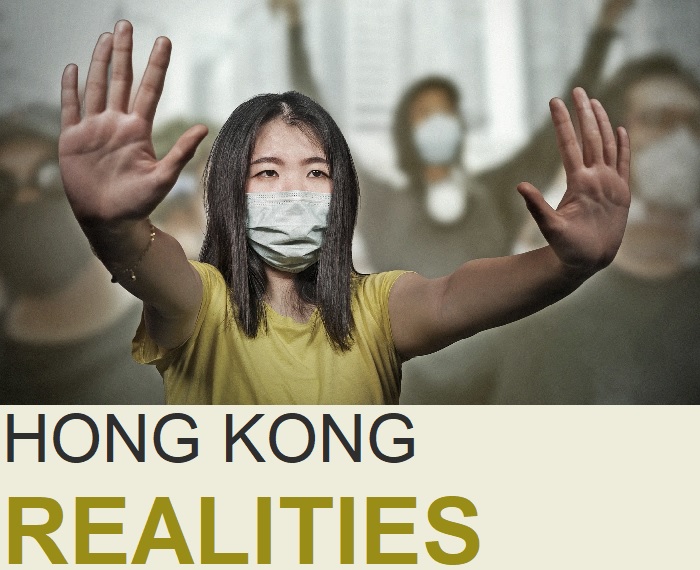Will there be a flow of people out of Hong Kong to the UK now that the Chinese government has introduced its new national security law and Britain has responded with extended residency rights? If so, will it be a flood or a trickle? Steve Jordan talks to some of those at the sharp end to find out.

It was at the end of June that the British government announced that it would extend residency rights for British Nationals (Overseas) following the announcement by the Chinese government that it will impose a national security law on Hong Kong. The UK government made a commitment to change the rules for BN(O)s should China implement the new national security law first proposed in early June.
UK Foreign Secretary, Dominic Raab, said: “We will not look the other way on Hong Kong, and we will not duck our historic responsibilities to its people. We will honour our commitment to change the arrangements for those holding BN(O) status and continue to stand up for the people of Hong Kong.”
This new bespoke immigration route will allow BN(O)s to enter the UK without the current six-month limit, granting them five years limited leave to remain, with the ability to live and work in the UK. After these five years, they will be able to apply for settled status and, after a further 12 months with that status, apply for citizenship. The exact date from which this will apply has yet to be announced.
UK Home Secretary, Pritti Patel added: “China’s decision to impose national security legislation on Hong Kong is deeply regrettable. Now China has imposed this law we will launch a new immigration route for BN(O) and their families. The UK has a historic and moral obligation to BN(O) in Hong Kong and we will honour our commitment to them.”
So, those in the international moving industry, both in the UK and in Hong Kong, might be forgiven for expecting a rush of Hong Kong Chinese people forsaking their homeland to seek what they perceive as greater stability and freedoms. But, maybe not. I spoke to three international movers in Hong Kong who would be at the sharp end of any mass exodus, all of whom believe the flood is more likely to be a dribble, if anything at all.
 Jim Thompson, Crown Worldwide
Jim Thompson, Crown Worldwide
Jim Thompson does not believe there will be much demand , even if people want to leave, there are plenty of other options for them to choose. “The news made me laugh,” he said. “Seems Britain is starting to feel a bit of a guilty conscience about leaving all the people of Hong Kong in the hands of the mainlanders back in 1997. Nice of them to offer residency all these years later but I'd be surprised if there are many takers. Despite what you read or see on TV Hong Kong is absolutely fine and will continue to be a very dynamic city going forward. The vast majority of the citizens here are happy with their lives and angry at the group that are screaming of 'independence' and 'liberate Hong Kong'- neither of which is realistic.”
Jim said that the largest non-local nationality (passport holders) in Hong Kong are the Canadians with 300,000 people. “By contrast there are only about 34,000 British passport holders in Hong Kong and a similar number of Americans” he said that if the Brits carry through with their offer to Hong Kongers, there might be some initial interest. “Who doesn't want a second passport? But they'll be back here to work as soon as they can.” He also made the point that if people do leave, their places would rapidly be filled with highly talented young people from mainland China who would not be seeking the independence of a break away from the mainland. “Many of us here would love to see the trouble-makers leave for foreign shores and just let Hong Kong move forward peacefully.”
 Rob Chipman, Asian Tigers Mobility
Rob Chipman, Asian Tigers Mobility
Rob Chipman was equally sure that there will be no mass exodus to the UK or anywhere else. “The vast majority of HK people go about their business quietly, largely non-political, they are much more interested in making immediate, tangible progress in the granular measurers of life like jobs, job security, money, and overall wellbeing. There may be some change afoot in this regard. Even so, I don’t think many HK Chinese would expect improvement in any of these aspects of life by trading HK for the UK.”
Rob said that personal safety in Hong Kong is a ‘given’ as are the cultural and social factors that make day to day living pleasurable. The differences in language, food, art, music and all the touchpoints of life present a formidable barrier. “So, to want to get by that barrier, conditions have to be really good at the destination, or really bad at the origin. Things are not that bad here.”
It all depends on how mainland China applies the law and if it is used to control the population. Rob admits that the law could be used to silence, intimidate, coerce and cajole the population, which he says is scary. “But unless and until that happens, on a widespread scale, it’ll be wait, watch and see what happens.”
 Warwick Woodley, Asian Express
Warwick Woodley, Asian Express
Warwick Woodley from Asian Express agrees, but thinks there will be an increase in movement, if modest. He said that three million Hong Kongers won’t be rushing to move anywhere but emigration consultants have seen an upswing in enquiries since this news came out and there has been a rush to apply for BN(O) passports. “But this doesn’t mean all these people will leave. We think many BN(O) passport holders will keep their passports current but adopt a ‘wait and see’ attitude. Unlike prior to the 1997 handover, where there was a huge exodus in the intervening years many since returned to Hong Kong, this time round we don’t think we’ll see the same rush to get out.”
One factor, according to Warwick, is very practical. “Thoughts of abandoning family, friends and their native home will hold a number back,” he said, adding that finding a job in the shadow of a global pandemic and the forthcoming recession, will not be easy. “They need to study or work for five years first, being self-sufficient over this time (so will need their own funds), and then can only apply for citizenship in the sixth year. Many BN(O) passport holders just won’t be able to afford to move. So, we think we will see an increase, over time though, and whether or not this accelerates will depend on how life is here under the new security law that has been introduced.”
So, have we answered the question? I think so. Yes, there might be a few people, maybe those who were considering a change anyway, who are finally convinced to make a move to the UK as a result of these changes. But not many. Life in Hong Kong is pretty good for most and is likely to continue to be so. If people do want to leave, their destination of choice is likely to be Canada and the USA, not the UK, despite the UK government’s apparent olive branch legislation. And we must not miss the COVID factor, Hong Kong has only had seven deaths in the last six months from a few hundred cases: in this current environment, that’s got to be a very good reason for Hong Kongers to stay put.
Photos (top to bottom):
Jim Thompson, Crown Worldwide
Rob Chipman, Asian Tigers Mobility
Warwick Woodley, Asian Express